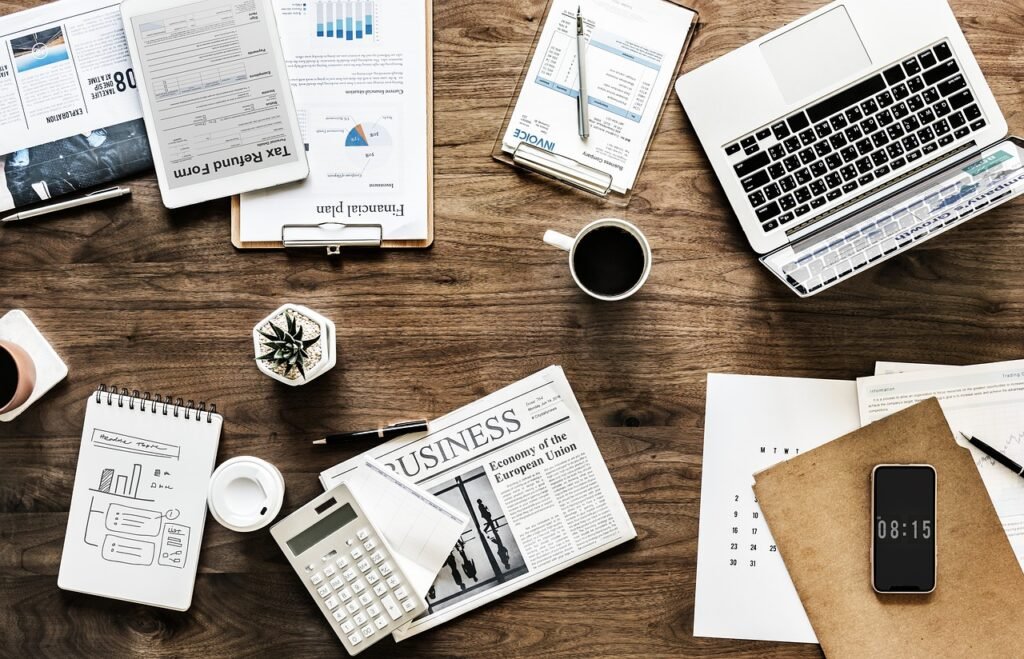Are you struggling to keep your wallet organized and efficient? Take a deep breath and relax – managing your wallet doesn’t have to be a daunting task. By following some simple tips and tricks, you can streamline your wallet management process, save time, and avoid the frustration of rummaging through a cluttered wallet. In this article, we will explore practical considerations for everyday wallet use, helping you make the most out of your wallet and maximize efficiency. Let’s get started!

This image is property of pixabay.com.
Essential Tips for Organizing Your Wallet
When was the last time you cleaned out your wallet? Chances are, there are receipts, old gift cards, and other unnecessary items cluttering up your wallet. Start by taking everything out of your wallet and sorting through it. Dispose of any expired cards, receipts you no longer need, and old business cards. Only keep essential items in your wallet, such as IDs, credit/debit cards, and cash.
Keep it Neat and Tidy
Maintaining a neat and tidy wallet is crucial for easy access to your essentials. Consider using a slim wallet to prevent unnecessary bulk and clutter. Utilize cardholders or dividers to separate different types of cards and IDs. Develop a system for organizing your cash, such as using a money clip or cash envelope. By keeping your wallet organized, you can easily find what you need and avoid the frustration of searching through a mess of papers and cards.
Maximizing Efficiency with Digital Wallets
In today’s digital age, many people are opting to use digital wallets for their convenience and security. Digital wallets, such as Apple Pay and Google Wallet, allow you to store your payment information securely on your smartphone. This eliminates the need to carry physical cards and cash, making transactions quick and easy. Consider using digital wallets for everyday purchases, online shopping, and bill payments to streamline your financial transactions and reduce the clutter in your physical wallet.
Security Considerations
While digital wallets offer convenience, it’s essential to prioritize security when using them. Protect your smartphone with a strong password or biometric authentication, such as fingerprint or face recognition. Enable two-factor authentication for added security and regularly update your device’s software to protect against security vulnerabilities. Be cautious when making online transactions and only use reputable and secure websites and apps for financial transactions. By taking these security precautions, you can enjoy the convenience of digital wallets without compromising your sensitive information.

This image is property of pixabay.com.
Utilizing Loyalty and Rewards Cards
Do you have a collection of loyalty cards from various stores and restaurants in your wallet? Loyalty and rewards cards can be beneficial for saving money and earning discounts, but they can quickly clutter up your wallet. Consider digitizing your loyalty cards by using a mobile app or storing them in a separate cardholder. Many retailers offer digital loyalty programs that allow you to earn and redeem rewards using your smartphone, eliminating the need to carry physical cards. By organizing your loyalty and rewards cards digitally, you can access them easily and make the most out of your memberships.
Consolidate Your Cards
If you have multiple loyalty and rewards cards for the same store or program, consider consolidating them into one account. Many retailers allow you to merge multiple cards into a single account, simplifying the rewards redemption process. Keep track of your rewards points and expiration dates to ensure you don’t miss out on any discounts or benefits. By consolidating your loyalty and rewards cards, you can streamline your wallet and make it easier to access and use your rewards.
Tracking Expenses and Budgeting
One of the most critical aspects of wallet management is tracking your expenses and budgeting effectively. By monitoring your spending habits and creating a budget, you can avoid overspending and manage your finances more efficiently. Consider using a budgeting app or digital wallet to track your expenses in real-time and categorize your spending. Set financial goals and allocate a specific budget for different categories, such as groceries, entertainment, and transportation. By staying on top of your expenses and budget, you can make informed financial decisions and avoid unnecessary debt.
Set Realistic Goals
When creating a budget, it’s crucial to set realistic and achievable financial goals. Start by analyzing your income and expenses to determine your discretionary income. Identify areas where you can cut back on expenses or save money, such as reducing dining out or canceling unused subscriptions. Set short-term and long-term financial goals, such as saving for a vacation or building an emergency fund. Regularly review your budget and adjust it as needed to stay on track with your financial goals. By setting realistic goals and sticking to your budget, you can achieve financial stability and peace of mind.

This image is property of pixabay.com.
Emergency Preparedness with Your Wallet
Your wallet is more than just a place to store your cards and cash – it can also be a valuable tool in emergencies. Prepare for unexpected situations by including essential items in your wallet, such as a copy of your ID, emergency contact information, and a small amount of cash. Consider adding a list of medications you take, allergies you have, and any relevant medical information for emergencies. Keep a spare key to your house or car in a discreet compartment in your wallet for easy access in case of lockouts. By preparing for emergencies with your wallet, you can feel confident and secure in any situation.
Create an Emergency Contact Card
In case of an emergency, it’s crucial to have a contact card with essential information readily available in your wallet. Include your name, emergency contact numbers, blood type, and any relevant medical conditions on the card. Keep the card in a visible and easily accessible pocket in your wallet to ensure that first responders can quickly identify it in emergencies. Update the contact card regularly with current information and inform your emergency contacts about its existence in your wallet. By creating an emergency contact card, you can ensure that help arrives promptly when you need it most.
Protecting Your Identity and Personal Information
Identity theft and fraud are significant concerns in today’s digital world, making it essential to protect your identity and personal information at all times. Safeguard your wallet by keeping it secure and avoiding leaving it unattended in public places. Use RFID-blocking wallets or sleeves to protect your cards from unauthorized scanning and skimming. Avoid carrying unnecessary personal documents, such as your Social Security card or passport, in your wallet unless absolutely necessary. Regularly monitor your bank and credit card statements for any unauthorized transactions and report any suspicious activity to your financial institution immediately.
Shredding Sensitive Documents
When disposing of sensitive documents, such as bank statements, receipts, and old IDs, it’s crucial to shred them to prevent identity theft. Invest in a cross-cut shredder to securely destroy sensitive documents and ensure that your personal information is not compromised. Avoid throwing away documents with personal information intact, as they can be targets for identity thieves. Shred any documents containing your name, address, phone number, Social Security number, or financial information before discarding them. By shredding sensitive documents, you can protect your identity and reduce the risk of fraud.
Travel Tips for Efficient Wallet Management
Traveling can be stressful, especially when it comes to managing your wallet and finances in unfamiliar environments. Prepare for travel by organizing your wallet and only carrying essential items, such as your passport, boarding pass, credit/debit cards, and local currency. Consider using a travel organizer or passport holder to keep your travel documents secure and easily accessible. Be cautious of your surroundings and avoid displaying large amounts of cash or valuable items in public places. By following these travel tips, you can enjoy a stress-free and organized travel experience.
Notify Your Bank
Before traveling, notify your bank and credit card companies of your upcoming trip to prevent any unexpected holds or declines on your cards. Provide them with your travel dates and destinations to ensure that your cards are not flagged for suspicious activity while abroad. Consider setting up travel alerts on your mobile banking app to receive notifications of any card transactions during your trip. Have the contact information for your bank readily available in case you need to report a lost or stolen card while traveling. By notifying your bank before traveling, you can avoid disruptions in your financial transactions and enjoy a smooth travel experience.
Maintain a Travel Budget
When traveling, it’s essential to set a budget and track your expenses to avoid overspending and stay within your financial limits. Create a separate budget for transportation, accommodations, dining, and activities to help you plan and manage your expenses effectively. Use a travel budgeting app or spreadsheet to monitor your spending in real-time and adjust your budget as needed. Look for ways to save money while traveling, such as taking public transportation, dining at local eateries, and purchasing attraction tickets in advance. By maintaining a travel budget, you can make the most out of your trip without breaking the bank.
Conclusion
In conclusion, managing your wallet efficiently is a vital aspect of personal finance and everyday life. By following the essential tips and considerations outlined in this article, you can streamline your wallet management process, save time, and avoid unnecessary stress. Organize your wallet, utilize digital wallets, track your expenses, prepare for emergencies, protect your identity, and follow travel tips to maximize efficiency in your wallet management. Remember to review and update your wallet regularly to ensure that it remains organized and clutter-free. With a little effort and commitment, you can transform your wallet into a valuable tool for financial success and peace of mind. Start implementing these tips today and take control of your wallet management for a brighter financial future!
